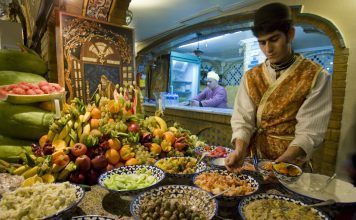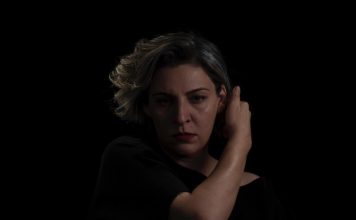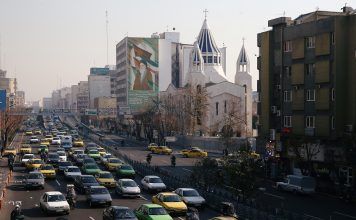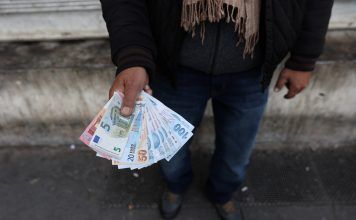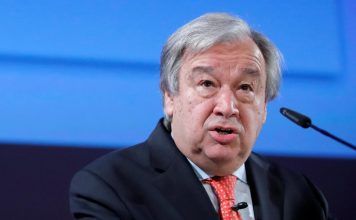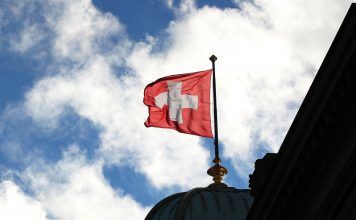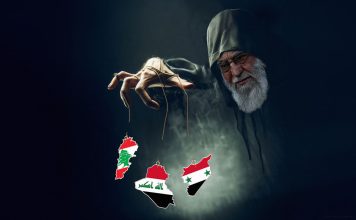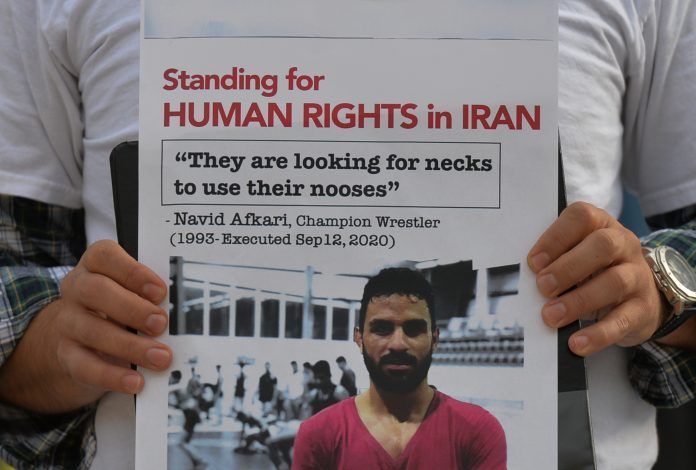
A 24-hour online conference highlighting the use of the death penalty in the Islamic Republic of Iran was hosted on Oct. 8 and Oct. 9 by the Oslo-based Iran Human Rights organization (IHRNGO).
The event was launched ahead of ‘World Day Against The Death Penalty,’ which takes place every year on Oct. 10. Several sessions at the conference were moderated by Kayhan Life senior correspondent Ahmad Rafat.
The Islamic Republic is currently the world’s most prolific executioner of children, women and men on a per capita basis. The state also criminalizes same-sex sexual activity, which can carry the death penalty. The number of executions in Iran has risen every year since 2021, according to IHRNGO.
The conference, which was streamed on IHRNGO’s YouTube account and conducted mostly in Persian, featured discussion panels and speeches by prominent human rights experts and activists around the world including:
-
Dr. Mai Sato, the United Nations Special Rapporteur on the situation of human rights in the Islamic Republic of Iran
-
Dr. Javaid Rehman, the former UN Special Rapporteur on situation of human rights in the Islamic Republic of Iran
-
Nobel Peace Prize Laureates Shirin Ebadi and Reza Akvanian, and
-
Chiara Sangiorgio, Amnesty International’s death penalty expert.
“This year’s World Day against the death penalty holds particular significance for the Islamic Republic of Iran, where we continue to witness an alarming increase in the use of the death penalty, with over 500 executions reportedly carried out this year,” Sato said. “Of particular concern is the targeted use of the death penalty against women activists and supporters of the ‘Woman, Life, Freedom’ movement, which began in September 2022 following the tragic death of Jina Mahsa Amini. Rather than addressing the movement’s demands for accountability human rights and gender equality, Iranian authorities have responded with intensified violence and punitive measures.”
“In the face of this, the courage of the Iranian people shines through,” Sato added.
Speaking in English with Persian subtitles, Rehman said he remained deeply concerned by the use of the death penalty in Iran and all other states using capital punishment.
“Capital punishment is used as a weapon to terrorize an entire population of a country by sending people to the gallows. The death penalty is weaponized and instrumentalized against people who are vulnerable and weak, typically from marginalized communities, and whose executions result in very little political cost,” Rehman said. “The imposition of the death penalty neither serves justice nor does it make societies safer. The death penalty in modern states, and in particular the manner of its imposition in modern states is contrary to the dictates of religious values and Islamic jurisprudence.”
“It is thus extremely shocking to note that there are currently over 80 offenses in Iranian law which allow the application of the death penalty, and several of these so-called offenses cannot be categorized as offenses, let alone the most serious offenses,” Rehman added.
EXCLUSIVE: New UN Rapporteur on Iran to Focus on Gender Inequality, Executions
The event shared calls for international assistance to end executions in Iran — in the form of letters written by detained women’s rights activists Nasrin Sotoudeh and Narges Mohammadi written while in Evin prison in Tehran.
Rafat, the Kayhan Life senior correspondent, spoke with several prominent human rights activists including Mehrangiz Kar.
Kar, a leading human rights lawyer and women’s rights advocate, was married to the former journalist and political prisoner Siamak Pourzand, who took his own life in Tehran in 2011 following decades of ill treatment by officials while in prison.
The online conference was organized in support of the ‘No To Execution Tuesdays’ hunger strike campaign.
EXCLUSIVE: UN Ex-Rapporteur Postpones Trip to US Following Iran Regime Threats
The hunger strikes were launched on Jan. 30 by political prisoners in Karaj’s Ghezelhesar prison after they witnessed months of group executions. The week day of Tuesday was chosen because the inmates noticed that prisoners were routinely placed in solitary confinement on that day before being hanged in the prison. The campaign has also come to be known as ‘Black Tuesdays’ or ‘No Death Penalty Tuesdays.’
The strikes have since spread to 22 jails in Iran, despite violent crackdowns by prison officials.
Raphaël Chenuil-Hazan, the president of the Paris-based Together Against the Death Penalty (ECPM), said executions in Iran were used “as a political message from the regime to the people of Iran, to say ‘your life is in our hands,’” and were “overused for minorities, against vulnerable groups, against political opponents, religious minorities and ethnic minorities, especially for example, the Kurds and the Baluchis.”
Chenuil-Hazan added that a joint 2023 annual report on the death penalty by ECPM and IHRNGO held that 20 percent of executions in Iran involved members of the Baluch community, which makes up just 6 percent of Iran’s population. The report also found that executions surged by 43 percent following the nationwide anti-government protests ignited by the death of 22-year-old Mahsa Amini. Amini was arrested for failing to follow the country’s forced hijab laws and died of injuries she sustained while in police custody.
“Other figures show how the death penalty is a shame for Iran and for the world. In Iran last year, at least 22 women were executed, which is the highest on record since 2013,” Chenuil-Hazan said. “In many cases, women on death row are condemned in the context of murder, and often the murder of their husbands. These women faced domestic violence, rape, and are then punished with the death penalty, which is the ultimate gender-based injustice.”
During the conference, a video message was played which featured Iranian human rights activists and Iranians explaining the origin of the ‘No to Execution Tuesdays’ campaign and inviting people to organize sit-ins and demonstrations in support of the movement. Footage of people protesting in different countries was shown at the event.
The movement has been backed by 10 Nobel Peace Prize winners, including Ebadi who posted a joint statement of support on Oct. 1 on her Instagram account.
“In a meeting I had with a group of Nobel peace winners, I witnessed their support for this campaign. Therefore, a letter regarding this was arranged and signed by a group of Nobel Laureates and international human rights activists,” Ebadi said in the post.
The remaining Nobel Laureates who signed the statement were: Maria Ressa, Jody Williams, Leymah Gbowee, Oleksandra Matviichuk, Oscar Arias, Kailash Satyarthi, Tawakkol Karman, and Rigoberta Menchú.
A separate joint statement published on Aug. 28 supporting the campaign was signed by 68 human rights organizations including Article 19, PEN America, the World Coalition Against the Death Penalty and the Abdorrahman Boroumand Center for Human Rights in Iran.
Globally, the number of states carrying out executions has steadily decreased. Almost three quarters of the world’s countries have abolished capital punishment in law or practice, according to Amnesty International’s latest annual report on the use of the death penalty, published on May 29.

